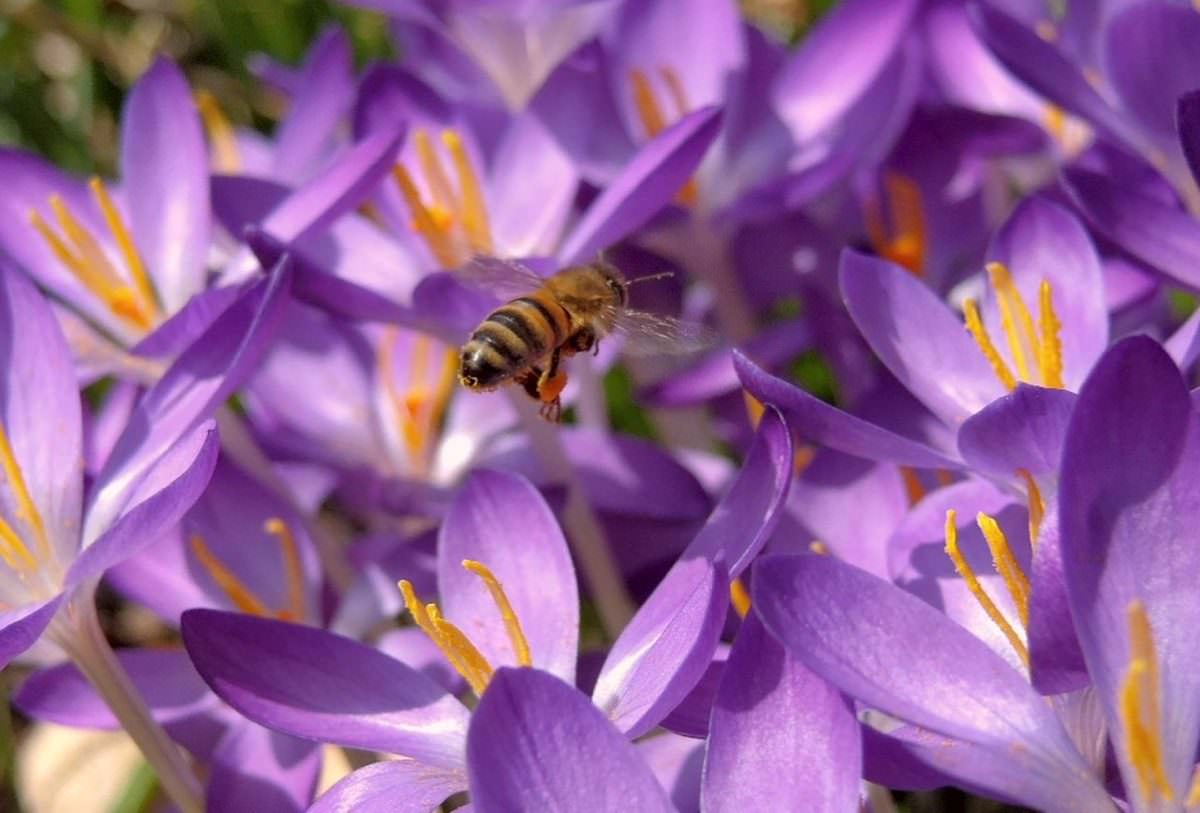Where and what do the bees like? And how can we make them happy?

A major part of saving any animal or plant species is figuring out what it likes in order to better provide it. (This is why researchers experiment with projects like showing giant pandas porn.) A new study from Ohio State University does not involve porn, but has the same basic goal: What do bees like?
The experiment is pretty simple: a colony of bees was placed between both urban areas in Columbus, Ohio and farmland just outside the city. The bees were free to forage for pollen wherever they liked, and were tracked over an entire season, with researchers testing grains of pollen to find out where they came from.
The bees overwhelmingly preferred to snag their pollen in the agricultural areas; at one point, 96 percent of their haul came from farmland, and at best, the bees only grabbed 38 percent from urban areas. That’s telling and important: evidence points to neonicotinoid pesticides as one culprit of bee colony collapses, and prior research showed that bees are actually attracted to flowers dosed with them. This new study indicates just how important it is that farmers take steps to make their land friendlier for bees; the bees are naturally going to head there, so a dangerous farm could have a much more damaging effect than other areas.
That wasn’t the only finding from the study; the researchers also measured the bees’ preferences for individual types of flowers, and found that the bees don’t much care about diversity. Instead, they head to big plots of their favorite types of flowers, like goldenrod. That information is also helpful: efforts to plant bee-friendly gardens could surely benefit from a better understanding of what the bees like. You can read more about the study here.